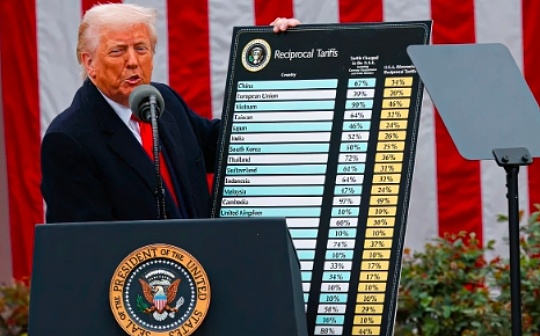Which ticket does Web3 recognize for "Tsinghua and Peking University academic master" or "grassroots player"?

Reprinted from chaincatcher
04/16/2025·4DAuthor: Fairy, ChainCatcher
Edited by: TB, ChainCatcher
To admire strength is human nature; and education is the most straightforward and eye-catching lines in the "strong script" written by this society.
We have long been accustomed to equating high education with intelligence, reliability and potential. Ivy League, Tsinghua University, MIT, Stanford -sounds like a component of some kind of "success formula". But in the crypto industry, is this formula valid?
In a crypto-based world that emphasizes decentralization, practice-focused and fast-paced, how effective is academic qualifications?

The collision between grassroots and elites
In the initial wilderness of the industry, entrepreneurs who can truly understand the model, build consensus, and bring the community are often a group of grassroots players who love the industry, dare to try and make mistakes, are willing to lose face, and are driven by faith. They used the most primitive methods to attract users, grow, build communities, and gain reputation, and promoted the crypto industry from zero to one, completing the initial wild growth.
But as the industry pattern continues to evolve, this situation is quietly changing. The crypto market is moving from the "rabbited stage" to the "institutionalized stage", and capital has begun to value governance structure, compliance capabilities and technical depth. Under such a trend, entrepreneurs with backgrounds from prestigious schools have begun to pour in on a large scale and gradually emerge in a new cycle.
It is this collision between grassroots and elites that has made the question of "whether crypto talents need education" a hot topic in the community and the market.
Top projects ≠ top prestigious schools?
According to the hundreds of applications it received in 2024, 19% of the founders graduated from the top 100 universities in the world, and 16% came from the QS world university rankings 101 to 500 universities.
At the same time, according to the compilation of the crypto KOL Tu'ao Lion Brother BroLeon, reviewing the top ten crypto projects (excluding stablecoins) with market value, there are both highly educated representatives from Ivy League schools such as Pennsylvania and Peking University and the "Beijing-Qing" system, such as Tron founder Justin Sun and AVAX founder Emin Gün Sirer; there are also CZ and Vitalik who dropped out of school and directly entered the industry. In addition, there are also founders from well-known universities such as UCSD and Moscow State University, as well as entrepreneurs from non-traditional prestigious universities such as the University of Houston and the University of Colorado.

Source: @BroLeonAus
Celebrity projects that frequently appear in early financing or promotion, such as Eigenlayer, LayerZero, Worldcoin, Celestia, as well as Hyperliquid created by Jeff Yan, Harvard-backed background, and Conflux led by Tsinghua Yao team. Judging from the current currency price trend and market attention, their performance is obviously differentiated, and there is no unified consensus on "famous school background = successful projects".
****Community Perspective: Is education "icing on the cake" or
"insignificant"?****
Web3 The relationship between education and success in the world is controversial. @WutalkWu once posted: "CZ and Vitalik both dropped out of college, FTX are all Ivy League last bosses went to jail. Education in the crypto market has little to do with success."
Biupa-TZC is also a trader. He shared that he studied in the top 20 universities in the United States undergrad, and graduate students studied at London Business School, but in the currency circle, academic qualifications are not the key to his recognition. He believes: "There is no necessary connection between trading and education, and everyone should be concerned about my trading and thinking."
CZ also shared his views on education. He admitted that there are indeed many capable people in famous schools, but they may not adapt to the crypto industry with "diaosi temperament". Education ≠ IQ, IQ ≠ success. In his opinion, the current education system may cultivate people who are good at completing tasks and good at exams, and these qualities may not be suitable for entrepreneurs' reality of "rolling in the mud".
Education is a plus, but not a decisive item.
Bitget CEO Gracy Chen said that this industry does not believe in education, we are superstitious about ability. If you don't have an education, speak with github stars. Have education and prove it with actual output. The ultimate winners are all ruthless people who can transform cognitive deficiencies into execution.
Gracy concluded: "The background of a prestigious school can add 20 points to Web3 entrepreneurs when telling financing stories, increasing the trust of VCs by 15 points, but for the survival rate of the project, it is almost 0 points." What really determines whether the project can survive is whether it solves the real and painful market demand. Education is a leverage, but it is by no means a gold medal to avoid death.
Binance co-founder He Yi said that it’s good to have it, and it doesn’t matter if it doesn’t. Knowledge does not equal skills, nor does it equal way of thinking, nor does it mean that it can support you in the pursuit of praise and slander. Most abilities are learned through daily diligence, and the mind is even more rare. Whether the candidate is upright, clear logic, resilience, and growth-oriented thinking is more important.

In the world of Web3, education is neither a ticket nor a shackle—it is just one chapter in many narratives. You can use it to tell stories that are easier to be remembered by the capital market, or you may prove yourself beyond your resume by relying on community contribution and product implementation.
So, do you think education in the field of encryption is important?

 panewslab
panewslab
 jinse
jinse